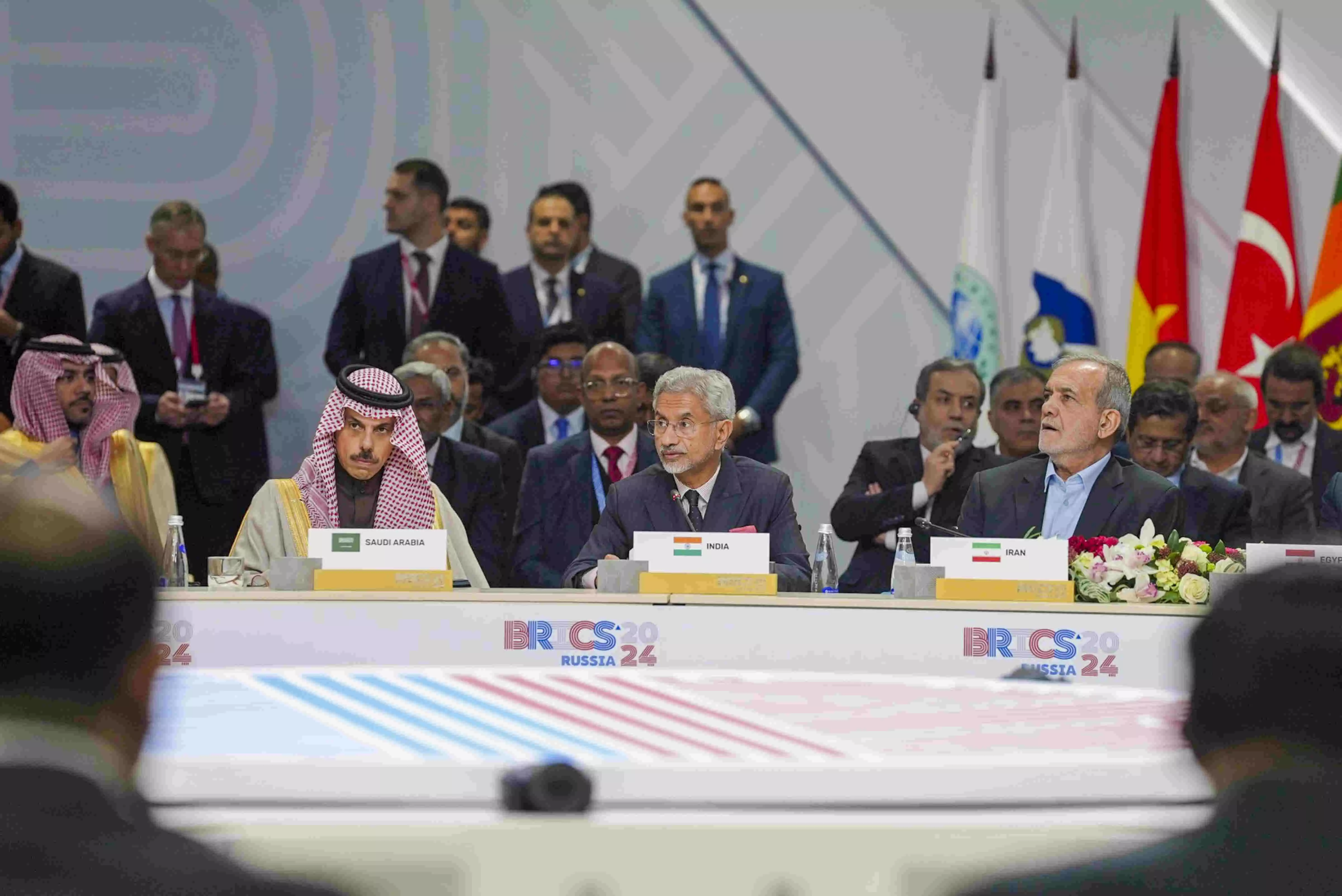Shaky, but secure

As top leaders of member nations assembled and deliberated at the 16th BRICS Summit, held in Kazan, Russia, the world couldn’t have been more ironic and hypocritical. Sitting in the midst of a nation that has been acting as the prime aggressor in the nearly three years old Russia-Ukraine war, the members of BRICS adopted the Kazan Declaration which expressed concern over the “rise of violence and continuing armed conflicts” and emphasised on “the need to engage in conflict prevention efforts, including through addressing their root causes.” Collective hypocrisy peaked when the declaration made strong references to the ongoing West Asian crisis, calling for permanent ceasefire in the Israel-Hamas war and return of hostages by the former, among other things, while the older Russia-Ukraine conflict found scarce reference. Russia being the host, its agenda was more than visible throughout the summit.
One of the most significant points of the Kazan Declaration was its condemnation of “unlawful unilateral coercive measures” and illegal sanctions, which have allegedly disrupted the global economy and impeded the achievement of Sustainable Development Goals (SDGs). This, obviously, is nothing but a reiteration of Russia’s official position against the sanctions imposed by the Western nations as a response to its aggression against Ukraine and other things. This assertion has considerable merit. The West has indeed gained notoriety for disproportionately weaponising sanctions against its rivals. However, the absolute silence on Russia’s own excesses has made the assertion look biased and unbalanced. Furthermore, the big three of the BRICS—Russia, China, and India—being either disposed towards the host or holding a strictly neutral stance, made the deliberations on the issue appear lopsided. Additionally, other member nations, as expected, shied away from taking a vocal stance against the Russian aggression. No wonder then that the reaction from Ukraine's foreign ministry pinpointed a lack of a unified stance on major global crises like the Russian invasion of Ukraine. Ukraine criticised BRICS' failure to present a cohesive position.
The Indian Prime Minister was among the rare voices who directly called for peace in Ukraine. Away from the wars and conflict, he also reaffirmed India’s position as a key player in global diplomacy. Modi called upon BRICS to embrace reforms in global governance. He also reiterated the need for early adoption of a Comprehensive Convention on International Terrorism, an issue of critical importance to India. Interestingly, India’s beloved agenda of ending terrorism resonated in the Kazan Declaration as well. The grouping firmly maintained that “any acts of terrorism are criminal and unjustifiable, regardless of their motivations”. The Indian PM also proposed a BRICS Startup Forum, which would strengthen innovation and economic opportunities—leading to economic resilience among member nations. By highlighting India's green initiatives and inviting BRICS nations to join in, Modi also asserted India's leadership in the realm of global climate action.
One of the most striking developments at the BRICS Summit was Russian President Vladimir Putin’s call for de-dollarisation of global trade. This trajectory, however, stands resisted by certain BRICS members that are wary of transforming BRICS into a solely anti-Western alliance dominated by Chinese and Russian influences. These fears are not completely unfounded. The expansion of BRICS remains yet another contentious topic. The inclusion of 12 new members, including nations like Turkey, Malaysia, and Uzbekistan, has broadened the group's geographic and political diversity. Yet, Brazil and India successfully resisted moves to admit Venezuela. The expansion of BRICS will likely lead to concerns over polarisation and organisation's ability to remain coherent and effective in the face of increasingly diverse national interests. Not to forget the influence of powerful nations of the grouping.
At a time when clouds of uncertainty already loom large over the efficacy of BRICS as a grouping, hijacking of its agenda by any bloc on the polarised horizon will lead to its further weakening. BRICS should serve as an effective machinery and not a tool that can be manipulated as per the interests of a few. India has rightly tried to stick to the purpose of the grouping and successfully maintained the much-needed balance in deliberations. India also held quite a few important bilateral meetings on the sidelines of the summit. While the trajectory of the grouping is still shaky, there are enough reasons to retain hope for the future.



